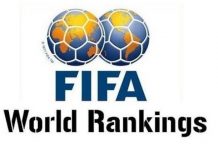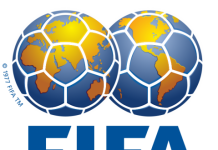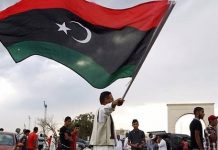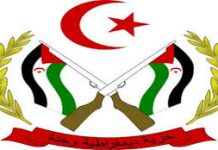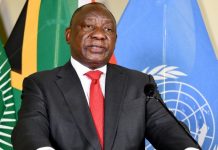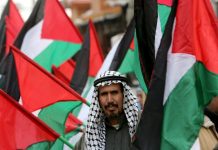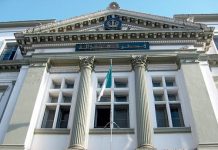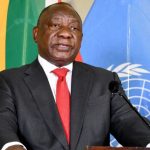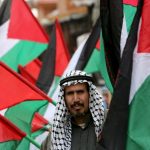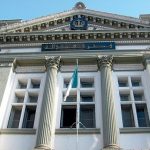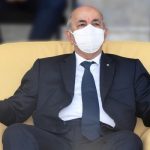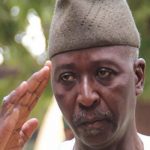The Council of Ministers met, Wednesday in Algiers, under the chairmanship of the President of the Republic, Abdelaziz Bouteflika, and issued a statement.
Here is the full statement:
“His Excellency Mr. Abdelaziz Bouteflika, President of the Republic, presided, this day, Wednesday, September 26, 2018, corresponding to 16 Moharam 1440, a meeting of the Council of Ministers.
The Council of Ministers has begun its agenda by examining and approving the Finance Bill for 2019 presented by the Minister of Finance.
Developed on the basis of a prudent macroeconomic framework, including a price of oil at $ 50 per barrel, a growth rate of 2.6%, and an inflation rate of 4.5%, this draft text also provides for 6.508 billion AD of budgetary revenues (up slightly compared to 2018) including 2.714 billion AD of petroleum taxation.
Budgetary expenditure will amount to 8,557 billion AD, a slight decrease compared to the current fiscal year. The overall balance of the Treasury for the 2019 financial year will show a deficit of nearly 2,200 billion AD.
The operating expenses (operational budget) will total 4.954 billion AD with a slight increase resulting from the security situation at the borders as well as the increase of the social transfers which will reach 1.763 billion AD, that is about 21% of the totality of the state budget.
The budgeted appropriations for social transfers will cover (i) more than 445 billion AD for the support of families, (ii) nearly 290 billion AD for pensions (to which will be added a support endowment of 500 billion AD to the National Pension Fund), (iii) close to AD 336 billion for public health policy, (iv) and more than AD 350 billion for public housing policy (to which will be added nearly AD 300 billion mobilized for the same sector by the National Investment Fund).
The capital budget will amount to AD 3.602 billion in payment appropriations and AD 2.600 billion in program authorizations for new projects or revaluations.
The slight nominal decline in the capital budget does not correspond to a decline in public investment policy, but it stems, in particular, from a decrease of nearly 300 billion AD of the credits devoted last year to the remediation of debts.
The consistency of the capital budget for 2019 confirms the continuation of the State’s commitment to economic and social development, including grants of (i) 625 billion AD for the support of human development, (ii) close to 1,000 billion AD of multifaceted support for economic development (iii) and 100 billion AD of assistance to local development.
In its legislative section, the finance bill for next year is limited to measures aimed at improving the management of public finances as well as the fight against fraud. There are also measures in favor of development, such as the total improvement of interest on bank loans to AADL for the construction of 90,000 new homes. No new tax or increase in public benefits is proposed in the draft Finance law for 2019.
The Council of Ministers subsequently examined and approved the budget regulation bill for the 2016 financial year.
This draft has been drafted in accordance with the provisions of the Constitution to allow Parliament to monitor the execution of the State Budget voted for the year 2016. This text will be accompanied by a report of the Court of Auditors on the subject of the same public expenses.
In terms of accountability, the bill in question highlights that the budget for the year 2016 was marked, in particular, by 5.026 billion AD revenue and 6.543 billion AD of expenditure and a budget deficit of 1.517 billion AD.
Despite the particularly difficult financial situation during which it was implemented, the 2016 public budget recorded the continuation of the State’s efforts for development, as illustrated, in particular, by the receipt of (i) more than 1,200 new schools and 300 canteens and half-pensions in favor of the national education sector, (ii) 43,000 teaching places and 23,000 new accommodation places for the higher education sector, (iii) as well as the completion of 288,000 housing units and the launch of another 98,000 units.
Following the approval of these two bills by the Council of Ministers, the President of the Republic noted the caution that marked the preparation of the draft budget for next year, so as not to expose the possible reversals of the global hydrocarbon market. The Head of State also noted a beginning of implementation of his guidelines for a rationalization of public expenditure of the State.
President Abdelaziz Bouteflika also seized this opportunity to underline that the State will continue its national construction efforts in all areas.
“Algeria must mobilize more to maintain and improve the level of human development of the population, especially that this latter is growing by more than one million (inhabitants) per year, and Algeria has means to succeed this bet, “said the President of the Republic.
“To this end, we must deepen the reforms already under way in all sectors, which will guarantee a fair, more transparent, more effective and more equitable social justice.”
To be successful, such reforms should also ensure a “public service with less bureaucratic obstacles,” president Bouteflika stressed.
He added that we have to “promote a more effective decentralization,” dialogue, and public authorities must listen to the concerns of citizens and find the appropriate solutions.
“At the same time, the valorization of national wealth, the supply of jobs, and the promotion of non-hydrocarbon exports will have to advance in a more sustained way, with the help of local investors and our foreign partners who urge the Government to continue and accelerate the improvement of the business climate in the country, “said President Abdelaziz Bouteflika.
The Head of State concluded his remarks by declaring that “these are, therefore, a set of major projects that should not distract us from the important political deadlines. I expect diligence and concrete results”.
The Council of Ministers continued its work by examining and adopting three presidential decrees relating to contracts for the exploration and exploitation of oil fields.
The first decree relates to a contract signed in January 2018 involving SONATRACH, and the company CEPSA on the extension of the production of the field called “Rhourde El Khrouf”. This investment will mobilize nearly 1.2 billion USD.
The second decree concerns an amendment to a contract associating SONATRACH, and its partners “TOTAL” and “REPSOL”, for the exploration and exploitation of the perimeter denominated “Tin Fouyé Tabenkort II”, with an investment of 320 million USD.
Finally, the third decree allows the early revocation of the contract binding SONATRACH and its partners TOTAL and REPSOL regarding an area called “Tin Fouyé”. This revocation will allow the implementation of the “Tin Fouyé Tabenkort II” perimeter contract.
In reviewing these three texts, President Abdelaziz Bouteflika called on the Government, particularly the energy sector, to intensify efforts to explore the country’s hydrocarbon capacity so as to continue to provide the country with financial resources for the financing of national development.
The Head of State also called for greater dynamism in the development of renewable energies, a major program adopted three years ago.
The Council of Ministers, then, examined and approved two decrees relating to the decommissioning of parcels of agricultural land in the provinces of Oran, Tebessa and Skikda.
The process of decommissioning of these lands was carried out by local multi-sectoral teams and then by National Commissions which, as ordered by the Head of State, made sure of the marginal agricultural quality of these lands.
The first concerned parcel, an area of 120 hectares, in the municipality of Tafraoui, province of Oran, is intended for the realization of a vehicle assembly plant by the company Peugeot with two local partners. This is an investment of 16.4 billion AD which will generate a thousand direct jobs on the industrial site, and 4,000 indirect jobs in the region.
The other two parcels, respectively of 150 hectares in the municipality of Bekkouche Lakhdar, province of Skikda and 487 hectares in the municipality of El Aouinet, province of Tebessa, are intended for the realization of two large phosphate fertilizer plants.
These two units will be part of a vast industrial and mining project that will increase phosphate production in Oued El Hedba deposit in Tébessa province, and will develop the transformation of this ore into various fertilizers in three factories to be located in the provinces of Tébessa, Souk Ahras and Skikda.
All this integrated project will be realized in partnership between Algerian and Chinese companies. The investment will reach more than 6 billion USD. It will create nearly 20,000 direct and indirect jobs for the population of the provinces of Tebessa, Souk Ahras, Skikda and Annaba.
The Council of Ministers also heard and endorsed a communication from the Minister of the Interior, Local Assemblies and Regional Planning, proposing amendments to the Presidential Decree on Administrative Districts in certain provinces.
The purpose of this proposal is to consolidate the attributions of the Walis Delegates “Deputy Governors”, so as to strengthen the link between the public service and the citizens.
This change will certainly have a positive impact on management and development, particularly, in Southern provinces, which were strengthened in 2014 by the creation of administrative districts headed by Walis Delegates.
Finally, the Council of Ministers concluded its work by examining and adopting individual decisions relating to civilian senior positions “.
APS
An Algerian news website aims at covering all the country’s territory through providing objective and positive image, focusing the most on breaking news.
A dynamic team is working on feeding the website by credible information in all fields of life; a reliable network composed of specialized elements working in harmony with our team in Algiers, the website’s headquarter, provides us more coverage and simultaneity.
“English” is what makes us different in Algeria and ranks us first too not only as a news website; English also makes it simple and fast for Anglophone world to discover our country.



